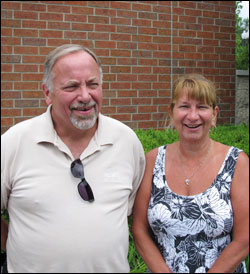Fight over rental restrictions heads to MN Supreme Court

By Tom Steward | Watchdog Minnesota Bureau
Think of it as a lottery with a 30 percent chance of winning.
The prize? A city permit authorizing people to be among the lucky property owners on their block allowed to rent their house.
For 70 percent of their neighbors, well, that’s just too bad.
That’s how it works in Winona, a southeastern Minnesota college community that in 2006 instituted an across-the-board rental restrictions on property owners.
“It’s basic freedom, it’s your house, it’s your property. And here’s another case of the government coming in blindly saying you don’t have those rights anymore because we’re the Winona City Council,” said Ethan Dean, one of four property owners suing the city.
At least three more Minnesota cities have passed rental caps on homeowners — Mankato, Northfield and West St. Paul. Now, the Minnesota Supreme Court will take up the 3-year-old property rights case.
“I’ve received inquiries from all over the country in the course of this case about various restrictions in people being able to rent out their property and otherwise exercise their property rights,” said Anthony Sanders, lead counsel for the Institute of Justice public interest law firm representing the homeowners. “So the eyes of property rights advocates and city planners are on us from all over the country.”
The “30 percent rule” was designed to restrict “excessive on-street parking, anti-social behavior and deteriorating housing conditions.” But property owners say the rental ban also restricts their basic constitutional right to rent their property.
Dean lost his home to foreclosure, partly due to lack of rental income to pay the mortgage, he said. The other plaintiffs lost thousands of dollars in lost rental income.
“I was prevented from legally renting. The city would rather homes could not be rented and people foreclosed than offer affordable housing,” said Holly Richard, who obtained a permit after the city mistakenly refused her application for two years.
STICKING WITH IT: Ted and Lauren Dzierzbicki finally sold their house after more than 4 years on the market, but plan to see the property rights case through to the end.
So far the courts have sided with Winona, most recently in a Minnesota Court of Appeals decision in February.
“We easily conclude that the public has a sufficient interest in rental housing to justify a municipality’s use of police power as a means of regulating such housing,” wrote Judge Michelle Larkin.
“In sum, the 30 (percent) rule establishes a neutral, numerical limit on the number of lots that are eligible to obtain certification as a rental property and applies uniformly throughout the affected districts on a first-come, first-served basis.”
The Minnesota Supreme Court, however, wants to take another look at the constitutional issues raised with the ordinance.
“The only thing the city would like to say at this point is that the Court of Appeals did get the decision correct,” said Shelley Ryan, an attorney representing the city of Winona. “We feel strongly that the Supreme Court accepted review simply to confirm the city’s authority to enact the rental restriction at issue and that the court will find that it is constitutional.”
“The Supreme Court of Minnesota has been very involved in defining the limits of zoning the last couple years in a series of cases,” said Sanders. “I think the court is seeing this as the next in that series to try and beat back the overreaching zoning that municipalities are engaged in.”
After four years without rental income, two plaintiffs in the case, Ted and Lauren Dzierzbicki, sold their house. But all four property owners remain committed to seeing the case through.
“More than anything else I just find it sad that all common sense and decency for their citizens has eroded to this point where we have to go to the Supreme Court to find what our freedoms are,” said Ethan Dean.
Contract Tom Steward at tsteward@watchdog.org.







